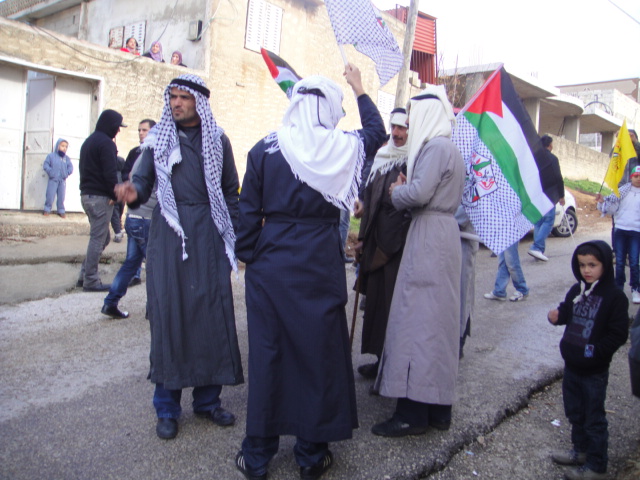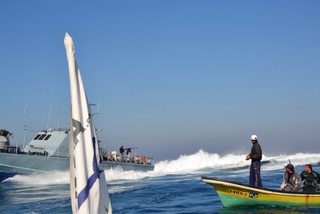Tag: Video
-
Kufr Qaddoum: Not peanuts in the colonists’ jar
by Amal 16 January 2012 | International Solidarity Movement, West Bank The cold and rain did not keep the residents of Kufr Qaddoum from protesting this past Friday. Even the hail storm did not stop them from demanding their equal rights. The resilience and courage of the residents cannot be summed up in words. However,…
-
What happened on the 10th of January in Jericho
14 January 2012 | Mahmoud Zwahre, Al Ma’sara Village I would like to thank all of you who stand with us, who have showed amazing support these past three days and demanded our immediate release from Israeli military jail. I hope that we will be able to free Omar Dar Ayoub from Nabi Saleh soon,…
-
Israeli navy attacks international observers, injures Palestinian, on monitoring boat in Gaza waters
28 December 2011 | Civil Peace Service Gaza At 10:55 am, an Israeli naval warship attacked the international observers and Palestinian captain of the Civil Peace Service Gaza (CPSGAZA) boat Oliva, injuring its captain in an apparent attempt to capsize it. “The Israeli navy passed near us and the fishermen, and started to go around…


